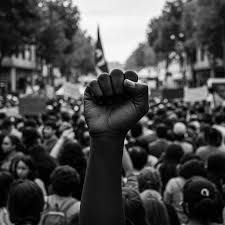EMMA DONOVAN & THE PUTBACKS – UNDER THESE STREETS: REVIEW
- Bernard Zuel
- Sep 10, 2021
- 4 min read

EMMA DONOVAN & THE PUTBACKS
Under These Streets (Heavy Machinery Records)
“I feel tomorrow’s sun on my face/Think about the living race/I don’t draw on the strengths that divide/I draw on love that has survived.” (Out The Door)
As Yola made explicit in our conversation earlier this week, as Francis Awaritefe implied in his music selections for House Music, and as the dozens of artists who took to the Harlem stage 52 years ago, captured in the film Summer Of Soul, showed last week, soul in its many forms is at its core about the three Ss: succour, surviving, succeeding.
Whether it is the African diaspora through Europe and the UK, the post-slavery generations in the Americas, or the Indigenous of Australia and the Pacific, the music may have sprung from that which offered strength and support through the grimmest times, but it also explores outlasting those travails with force and anger just as much as joy and energy, and then begins to see what world can be created once survival isn’t the only imperative.
The ability of Emma Donovan - a Gumbaynggirr woman from the north coast of New South Wales, whose lineage includes Naaguja and Yamatji people from Western Australia and the Danggali of South Australia - to nail those three elements is part of what deepens this third album from her tight and compact soul band, The Putbacks.
As she says in Call Out, “We claiming story/We sharing all the old ways/We know this black history here/Under these streets”, and it is a statement of fact, not contention. “We want to know the way tomorrow/We want the same for our children.” As Yola put it, let’s see what happens after the barriers are shoved aside and hard work begins afresh.
Even so, it’s never just about a righteous call to arms or redress: Donovan speaks to family in a wider sense, family in the immediate, and those around us on whom we draw strength to do what every day requires.
In Love Without Limit that back and forth of support between friends, the willingness to “give without limit” doesn’t have to be drawn on, but to know it’s there is vital for the willingness to leap into any unknown. At the same time, recognising how friends and everything else around us can sometimes mean we set aside the nurturing of the most intimate relationship, fuels the urgency within Take Some Time, where she balances tenderness and demand.
As ever though in soul, the personal is the political. From the opening track, the lithe, percussive funk Out The Door, Donovan suggests she is not here for the feelgood, but the feeling. “Get ready to be ready,” she says before treading the line between pitching forward and being held back by the dampening hand of a reluctant-to-yield society. “I need my kids and my community/I put the word out/Bringing up my family/Why don’t you come right inside.”
Two songs later, in No Woman Left Behind, she speaks to her mother, to all mothers – to the sisterhood generally, really - with simultaneous respect for them and a defiant reminder to others that there is a unity there, “a jindahood of girls soon to become the women of this place”, without which there is no building a future.
That this is not an album for party times, that it is talking about and to serious issues of culture, mixed pasts and complex futures, is emphasised by the angle of soul chosen by Donovan and her co-writing band: Simon Mavin on keyboards, Rory McDougall on drums, Mick Meagher on bass, Tom Martin on guitar and Justin Marshall on percussion.
Take Home, which – even more than the echoey, empty city pulse of No Woman Left Behind – is slow and enclosing, almost claustrophobically so, in the manner of Portishead. Disquieting noises and distorted guitar, a funereal beat punctuated by hard snare snaps and almost industrial percussive notes are paired with small moments of organ overlay, dark-hued, chain gang backing vocals, and Donovan’s troubled lead that gives the narrow melody an overhang of trepidation.
In a similar vein, the more clearly atmospheric Mountains Of Wind And Rainbows operates on a minimalist framework: the touches of beauty come from what sounds like vibraphone and once again organ before a curling, sinuous guitar line refreshes, but it’s all operating within a late-night air of equal parts restraint and weariness.
Even Nothing I Can Do, the one track that leans into a more traditional smooth dance groove (and leans into a more traditional love-treat-me-right storyline), with Mavin’s runs driving the hooks while Martin’s guitar settles into the rhythm section, still has a sparseness to it that moulds the mood a degree or two below sweaty. When Take Some Time approaches similar territory, it is really only in the chorus, as the verses veer towards Talking Heads insular funk. A reminder that this really isn’t a comfort stop.
Within the lowered ceilings and curtained windows of Under These Streets after the push of Out The Door, Donovan’s voice never works for ego, instead navigating through these songs as a collaborator. It is only in the final track, Love Without Limit, that she pushes it to prominence, and it is not only justified but subtly powerful in both tone and message. “Go about my own thing/With no regrets.”
Under These Streets is out September 17.








Comments